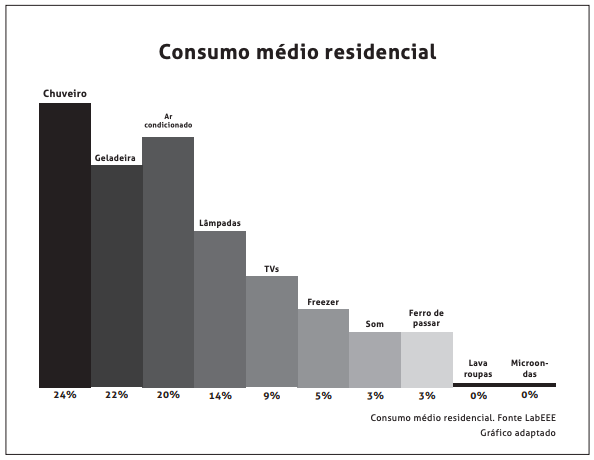Questões de Vestibular CÁSPER LÍBERO 2015 para Vestibular
Foram encontradas 50 questões
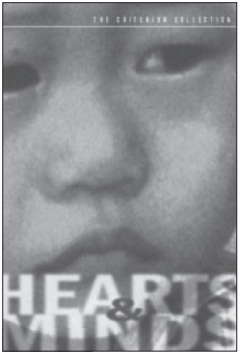
Storyline
This film recounts the history and attitudes of the opposing sides of the Vietnam War using archival news footage as well as its own film and interviews. A key theme is how attitudes of American racism and self-righteous militarism helped create and prolong this bloody conflict. The film also endeavors to give voice to the Vietnamese people themselves as to how the war has affected them and their reasons why they fight the United States and other western powers while showing the basic humanity of the people that US propaganda tried to dismiss. Written by Kenneth Chisholm
Source: http://www.imdb.com/title/tt0071604/accessed on October 10, 2015
According to the storyline above, the film Hearts & Minds:
Uma estatística recente sobre as infrações atribuídas a adolescentes pode ser observada no gráfico abaixo.
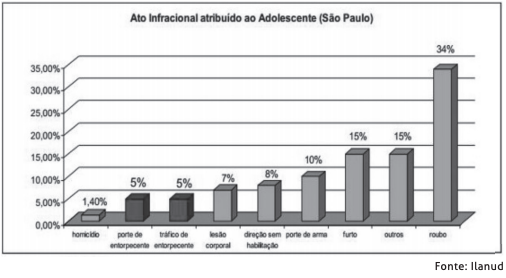
De acordo com o texto e o gráfico anteriores, assinale a alternativa que apresenta o diagnóstico correto sobre os atos infracionais atribuídos a adolescentes.
In “Impactos da redução dos limites de velocidade em áreas urbanas – EMBARQ – Brasil“
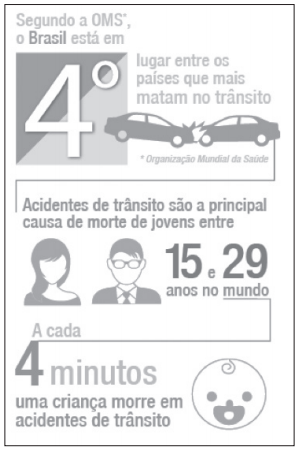
Leia o texto e observe o quadro na página 32 e assinale a alternativa que apresenta a conclusão correta.
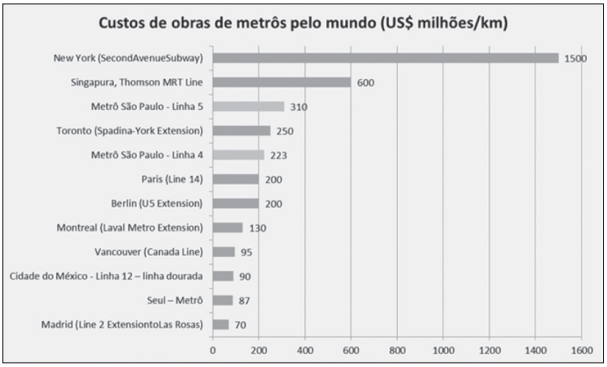
Fonte: http://www.mobilize.org.br/estatisticas/46/custos-de-metros-em-varias-capitais-do-mundo.html
A complexidade dos projetos de transporte, no caso de metrôs mostra-se ainda maior, pelo porte das intervenções e sua permanência no tempo. Segundo o engenheiro Peter Alouche, consultor de transporte sobre trilhos, “as estações são projetadas para durar 100 anos, o material rodante 50 anos e a parte eletrônica para ao menos dez anos”.
É o que explica a enorme disparidade de custos de construção de várias linhas de metrô em cidades do mundo.
Assinale a alternativa que apresenta a afirmação correta sobre as informações apresentadas no gráfico e no texto anteriores.
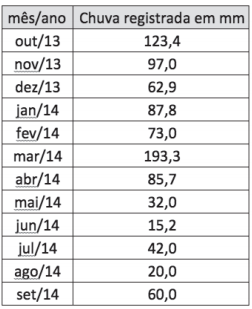
Fonte: Relatório da situação atual e previsão hidrológica para o sistema Cantareira – Cemaden
Para o período registrado, a média e a mediana dos dados observados é de respectivamente:
O gráfico abaixo mostra a porcentagem de consumo de energia dos equipamentos mais utilizados no dia a dia de uma residência.
De acordo com o gráfico, uma residência que consome 400kWh de energia por mês está consumindo:
